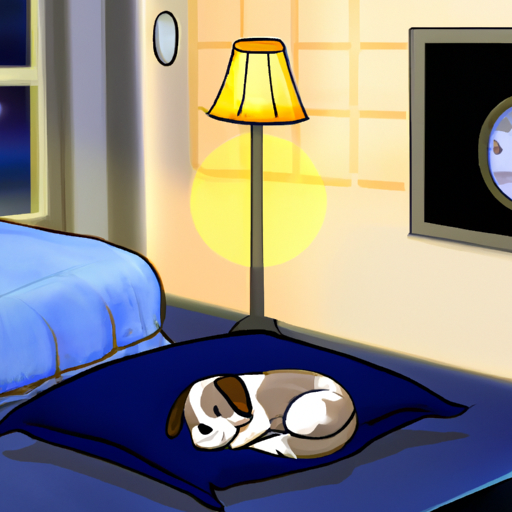As a new puppy owner, you’re most likely brimming with excitement, love, and a fair share of questions. One question that may be particularly pressing pertains to your puppy’s sleeping arrangements: “How long should a puppy sleep in your room?” Well, we’re here to shed light on that matter for you.
Understanding Your Puppy’s Sleep Needs
Firstly, it’s important to understand that puppies sleep a lot. A puppy can sleep anywhere between 18 to 20 hours a day. This is entirely normal and essential for their growth and development.
Table 1: Puppy Sleep Needs by Age
| Age | Average Sleep Duration |
|---|---|
| 8 Weeks | 18-20 hours |
| 3-4 Months | 16-20 hours |
| 4-6 Months | 14-16 hours |
| 6-12 Months | 12-14 hours |
| Over 1 Year | 12-14 hours |
Importance of Sleeping in Your Room
Having your puppy in your room for the first few nights or weeks can be beneficial for both of you. It can provide comfort and security to your new family member, and it allows you to keep a close eye on them. You can observe their behavior, ensure they’re not getting into trouble, and attend to their needs if they wake up in the middle of the night.
The Ideal Duration
Experts recommend having your puppy sleep in your room for the first three to six months. However, this is not a hard and fast rule.
-
Up to three months – At this stage, the puppy is still adjusting to its new environment and would benefit from your close presence.
-
Three to six months – As your puppy grows older, you can gradually start training them to sleep in their own space.
-
Beyond six months – It’s usually advised to move the puppy out of your room after six months.
Transitioning to Their Own Space
Transitioning your puppy to their own space doesn’t have to be a daunting task. Here are some tips to make it easier:
- Start by moving their bed closer to the door, then gradually to their own room.
- Attach positive associations to their new sleeping space. For example, offer treats or toys.
- Maintain a consistent routine to help them adjust.
The Role of Crate Training
Crate training can play a vital role in this transition. It can make your puppy feel safe and secure in their own space. It’s recommended to choose a crate that is large enough for your puppy to stand, turn around, and lie down comfortably.
Potential Challenges and Solutions
Although the transition might seem straightforward, you may encounter some challenges:
- Separation Anxiety: If your puppy shows signs of distress when left alone, consider using a comforting toy or blanket. Gradual training can also help.
- Nighttime Accidents: Young puppies might not have full control over their bladder. It’s essential to adjust their feeding schedule and take them out for a bathroom break before bedtime.
Frequently Asked Questions
How can I ensure my puppy sleeps through the night?
Maintain a consistent bedtime routine. This includes feeding, bathroom breaks, and calming activities like reading or cuddling.
Can I let my puppy sleep on my bed?
While it’s a personal choice, it’s generally advised not to let your puppy sleep on your bed. It can lead to behavioral issues and dependency.
What if my puppy doesn’t want to sleep in their own room?
Patience is key. Gradually increase the distance between your sleeping spaces. Use positive reinforcement to make their space appealing.
In conclusion, while having your puppy sleep in your room initially can be beneficial, it’s important to transition them to their own space as they grow older. This fosters independence and good sleeping habits. Remember, every puppy is unique and may require a different approach. Be patient, consistent, and loving in your approach.



